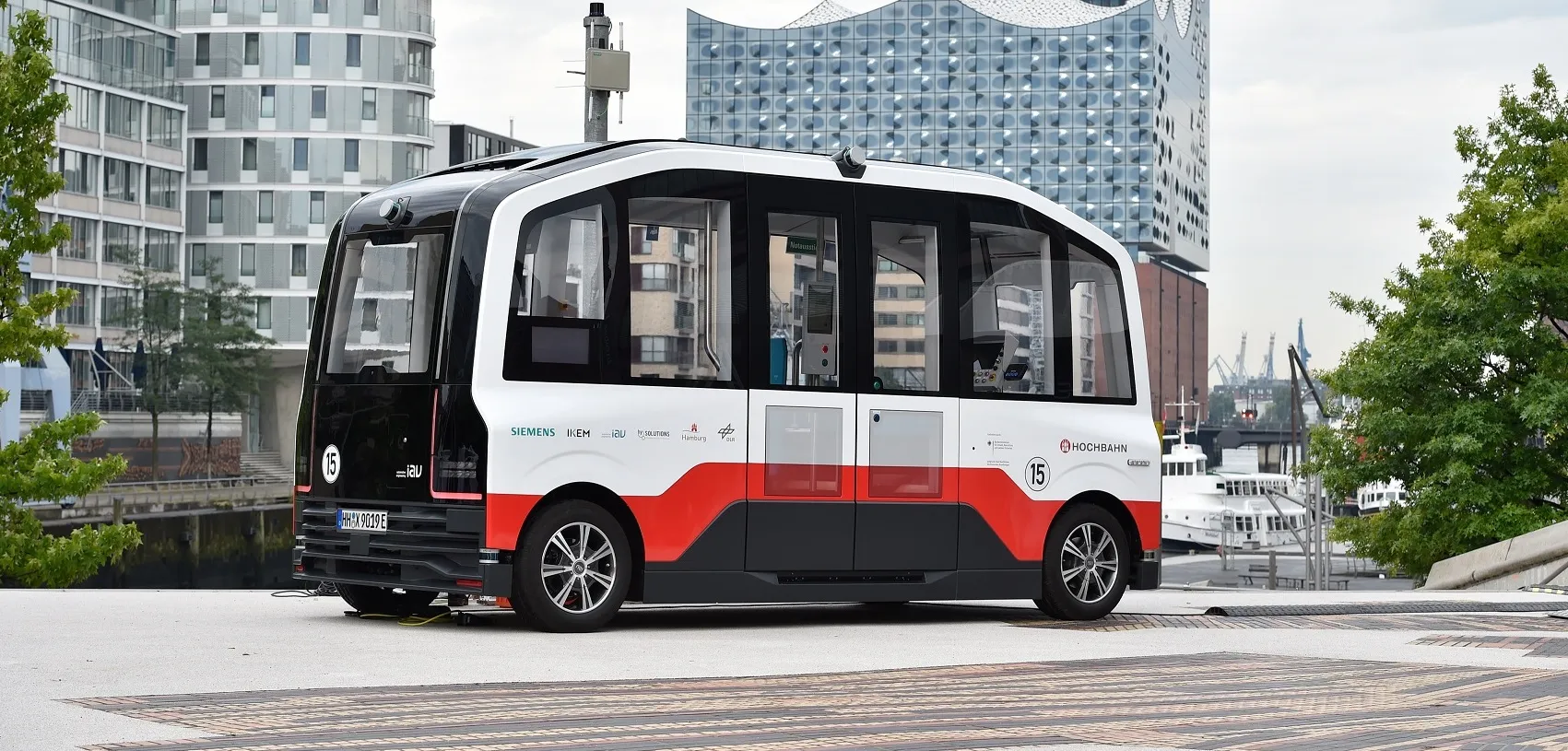
Autonomous vehicle (AV) project HEAT (Hamburg Electric Autonomous Transportation) has made its first test run with passengers on public roads.
The driverless minibus will be presented officially at the ITS World Congress in Hamburg this time next year but people can ride it now until the end of November - although a 'vehicle attendant' and 'technical support specialist' still have to be on board.
“A short distance for the bus – but a real milestone for the mobility of tomorrow," said Dr. Anjes Tjarks, Hamburg's senator for transport and mobility turnaround.
"With passenger service starting, HEAT will become part of the smart mobility mix in our city."
The AV travels through the central Hamburg area of HafenCity at speeds up to 25 km/h.
Siemens Mobility has deveoped the roadside infrastructure, which was integrated by Hamburg Verkehrsanlagen (HHVA).
The Hamburger Hochbahn vehicle also uses the HD map of the current route provided by the City of Hamburg, which is accurate to within a few centimetres.
Infection prevention measures mean the shuttle can only carry up to three passengers at a time in addition to the two attendants.
Henrik Falk, CEO of Hochbahn, says: “Now that we can put the shuttle into operation, we are getting much closer to the concept of the research project: to provide an autonomous minibus as a new service when it is not practical to use larger vehicles – such as during odd hours or on the outskirts of the city."
He admitted there is "still a long way to go" but insisted that progress was being made.
Passenger feedback will be sought in order to help 'optimise' the experience of travel before the launch next year.








